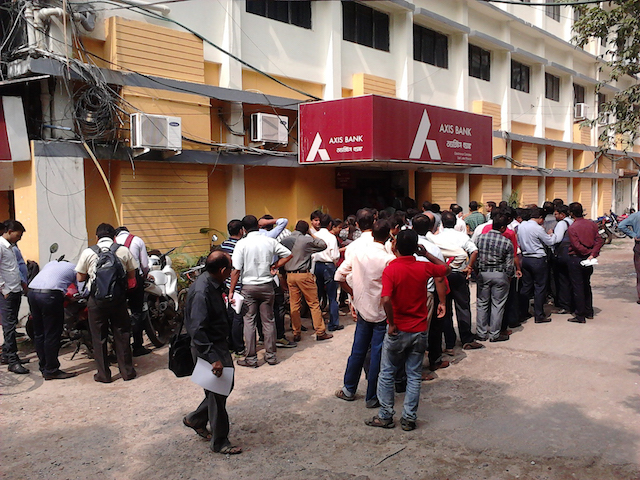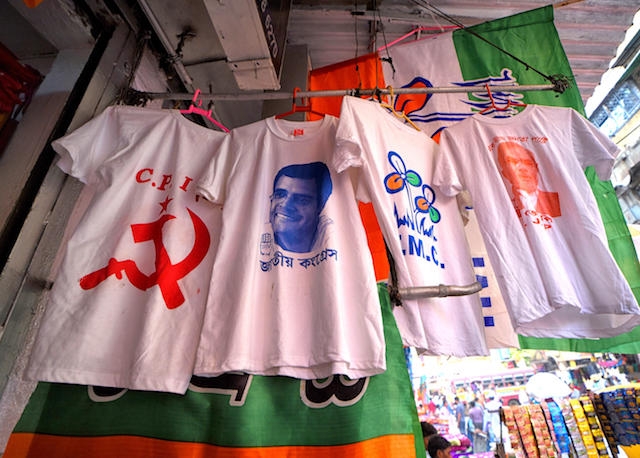The Indian general election results have panned out as I predicted previously in these pages. Narendra Modi, the leader of the Bharatiya Janata Party (BJP), which advocates a nationalist ‘Hindutva’ ideology, won 303 of 542 Lok Sabha seats. The Congress Party, led by Rahul Gandhi (grandson of Indira Gandhi), managed a paltry 52, meaning that it has not even attained opposition-party status. Without official parliamentary opposition, then, there will be no one to challenge the prime minister during the next five years. This landslide victory must have been a surprise to Modi himself. The overall sentiment among the common man was against the incumbent – Modi’s recent implementation of both demonetisation and a Goods & Services Tax had not gone down well with the Indian public. The government’s surprise decision to declare the 1,000-rupee banknote void, an anti-corruption manoeuvre intended to flush out undeclared holdings, subjected average Indians to untold misery, who took to the streets in great numbers over the forced exchange of these now worthless notes. Meanwhile none of the corrupt, with their crores and crores of black money, faced any such difficulty: they could just bribe the bank managers 10 percent and exchange all their currency for the new 2,000-rupee notes. While the 2014 election results reflected a massive ‘Modi Wave’, following an effective campaign against the corrupt and scam-infested Congress Party, there was no such momentum this time round. And yet the BJP has increased its seats from 282 in 2014, with Modi now sitting comfortably.
Adding to what should have been Modi’s woes going into the election were the misgivings of many Hindus upset by a spate of high-profile lynchings carried out in the name of protecting cows. What condemnation he gave was mealy-mouthed, a mere formality. Why would Modi not condemn such extremist actions more forcibly or take proper action? Does his silence not affect the equilibrium of our society? With so much of the moderate Hindu population fearing Modi’s approach, how did he still manage to win 303 seats?
The answer lies in the disturbing actions of the minority – the Christians and the Muslims. After the announcement of elections, the churches began to campaign against Modi, insisting that Christians must not vote for him. Thousands of videos of preachers speaking against the prime minister started to do the rounds on social media. The Christian education institutions emphasised the same to its students. Imams spread a similar message in mosques. There are viral videos that show Muslim organisations making trips to Mecca (their airfares subsidised by the government) to pray for Modi’s defeat. The Congress Party encouraged such activities. Rahul Gandhi made an appearance at a prestigious Christian women’s college on his visit to Madras and said that they could address him as ‘Rahul’ and not ‘Sir’, as it made him feel more comfortable. As a counter to Modi’s Hindu nationalism, Gandhi has been exclusively romancing the minorities: at this particular school the speaking of Tamil is banned for instance – only ‘Christian’ English is allowed on campus – and the politician’s ‘flirty’ act here, and the Congress Party’s ‘Hindu bashing’ in general, irritated many moderate Hindus who might otherwise have turned away from Modi’s extremism.

Hindus, despite being the majority in India, consider themselves a minority in the world. Historically, unlike for example Buddhists, Hindus didn’t attempt to spread their religion in Southeast Asia. The Hindu religion has several worship methods. While villagers make animal sacrifices and offerings of arrack, urban Hindu populations regard such practices as barbaric and uncultured, preferring instead to avoid meat while performing their religious duties or to fast as a mark of reverence to Shiva or Vishnu. City-dwellers offer flowers, fruits and milk as part of their ritualistic puja. Hinduism even embraces atheists (the Charvaka is one such ancient school of thought). There is neither a holy book nor a prophet in Hinduism. Its origin hasn’t even been dated. So Hindus are scared that the evangelical acts of the Christians could completely wipe out their ancient religion. The unending concessions and reservations to minorities (especially to their educational and religious institutions) has rattled the Hindu majority. In the last five years, while ‘Hindutva’ fervour gathered momentum, the Christians went on an equally aggressive conversion spree. A cacophony of sermons and Hallelujah ‘decibel infernos’ was heard from preachers standing in every nook and on every street corner. “Oh Sinners! Pray to Jesus to absolve yourselves of all the sins!” tore at our eardrums. Things got to the point where people who planned to move would first check whether any churches were based near their prospective new homes. Nor could the police question this nuisance behaviour – places of worship sit beyond their control.
The preachers worked overtime, as if their only task was to convert every Hindu to Christianity within the next ten years. One day I was travelling in an autorickshaw. As I got down to pay the driver, he refused to take the money. Instead, he thrust a book in my hand and said it would be enough if I read it rather than giving money to him. It was the Bible. I returned it to him, saying that I already had six versions of the Holy Book with me. We live in a world of fanaticism on unparalleled levels.
The activities of the minority drove the ‘non-practising’ Hindu, or a Hindu who hadn’t given a serious thought about his religion until that point, to vote for Modi. These are the two main factors for Modi’s sweeping win.
Moreover, the accusations of corruption and inflation that brought down the Congress government in 2014 have not been laid against Modi. And by reelecting him, the people of India have effectively absolved the prime minister of religious extremism and fascism as well.
This mandate will result in our greatest misery. Religious harmony between Hindus, Christians and Muslims has now become a dream of the past, the drastic consequences of which every Indian must be ready to suffer.
Despite the ‘Hindutva’ success across the rest of the nation, the BJP didn’t win a seat in any of the 39 constituencies it contested in the state of Tamil Nadu (losing the one seat it took in 2014). There is a very specific local reason for this. Despite the age of modernism, the Tamils are still deeply divided in casteism. A century ago, the Dalits were considered untouchables. Even though such glaring acts of untouchability are not prevalent these days, we still witness heinous acts of Dalits being attacked violently in the villages. Amidst such deep-rooted casteism, extreme antagonism exists even today between the Brahmans and the non-Brahmans. There is a famous quote by the politician E.V. Ramasamy – ‘If you happen to see both a Brahman and a snake simultaneously, let the snake go and thrash the Brahman.’ The Brahman community of Tamil Nadu mostly favours Modi, and so the majority, deeply influenced by Ramasamy’s ideologies, believe that, by voting for Modi, they would be subjecting themselves to the dominance of the Brahmans. In Akira Kurosawa’s 1985 epic period drama, Ran, the court jester looks out at land left in utter destruction and breaks down, saying, “Are there no gods? No Buddha?… Are you so bored up there you must crush us like ants? Is it such fun to see men weep?” The warlord replies, “Don’t cry. It’s how the world is made. Men prefer sorrow over joy… suffering over peace. They revel in pain and bloodshed. They celebrate murder.” As soon as I heard about Modi’s sweeping victory, I wrote a poem.
Not even the Gods can save us any more
‘cos we’ve chosen our way of life –
We prefer misery,
We favour tears of pain,
We wish for a bloodbath.
We’ve now carved out our fate
Make no mistake – this is precisely how we like it
What are Gods and Prophets good for?
Who needs the seditious Mahatmas donning just a simple loincloth
Gone are those days
For we now embrace the path of blood
Why don’t you send a word to the Gods?
Tell them to rest in peace for a while.
Translated from the Tamil by Vidhya Subash
From the Summer 2019 issue of ArtReview Asia
